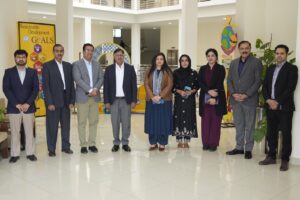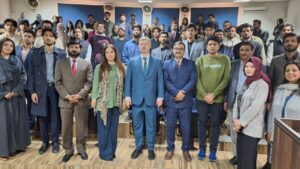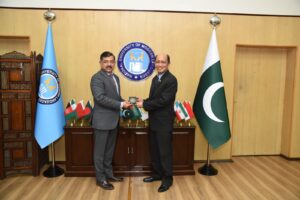Solar-Powered Portable Libraries Revolutionize Learning in Kenya’s Off-Grid Communities

Nairobi, The Gulf Observer: In a groundbreaking step towards bridging the digital divide in underserved regions, Kenya has embraced the innovative Solar Powered Educational Learning Library (SPELL), a solar-powered portable library initiative that allows students and community members to access educational content without electricity or internet connectivity.
Developed by Professor Laura Hosman, Associate Professor at Arizona State University’s School for the Future of Innovation in Society, the SolarSPELL library establishes local WiFi networks that function independently of the national grid or internet infrastructure. These libraries offer access to digital educational materials stored offline on a portable server—creating an inclusive, accessible learning experience for all.
Initially conceived as a tool for digital literacy in remote settings, the SolarSPELL initiative has found firm ground in Kenya. Recently, trainers at the Centre for Mathematics, Science and Technology Education in Africa (CEMASTEA) underwent an intensive induction programme to learn how to use and teach with the portable library. These trainers will now help educators and community members across the country utilize the device to support teaching in STEM fields.
Each SolarSPELL unit includes a solar panel, lithium-ion battery, Raspberry Pi microcomputer, voltage regulator, USB cables, and an SD memory card loaded with educational resources. It creates a local WiFi hotspot to which any WiFi-enabled device—such as laptops, smartphones, or tablets—can connect to access curated content ranging from reading and math tutorials to health and science materials.
“Even in areas without internet or stable electricity, young people can learn, grow, and engage with the digital world through SPELL,” Professor Hosman said in an interview with the Kenya News Agency. She emphasized that the aim is not only to deliver content but also to build digital literacy and internet-readiness skills in communities typically left out of the digital revolution.
The initiative is part of a broader global programme by Arizona State University, with SolarSPELL libraries now deployed in 15 countries, many in the Global South. The platform allows for local customisation of content with input from community stakeholders, ensuring cultural relevance and language appropriateness.
In Kenya, SPELL is already serving as a lifeline for schools, health clinics, and farming communities in off-grid regions. The system can power up for 6 to 8 hours daily and support up to 25 users simultaneously. With access to agricultural training materials and health tutorials, SPELL is not only supporting academic learning but also community development and economic empowerment.
Professor Hosman noted that only 29% of surveyed users in East Africa and the Pacific Islands have consistent access to electricity, making the solar-powered model especially vital. “We are not just teaching content,” she said, “we are preparing communities for full digital inclusion.”
As Kenya continues its journey toward a digitally inclusive society, SolarSPELL stands as a transformative force—empowering students, educators, and communities to thrive in the information age, regardless of their geographic or economic constraints.


